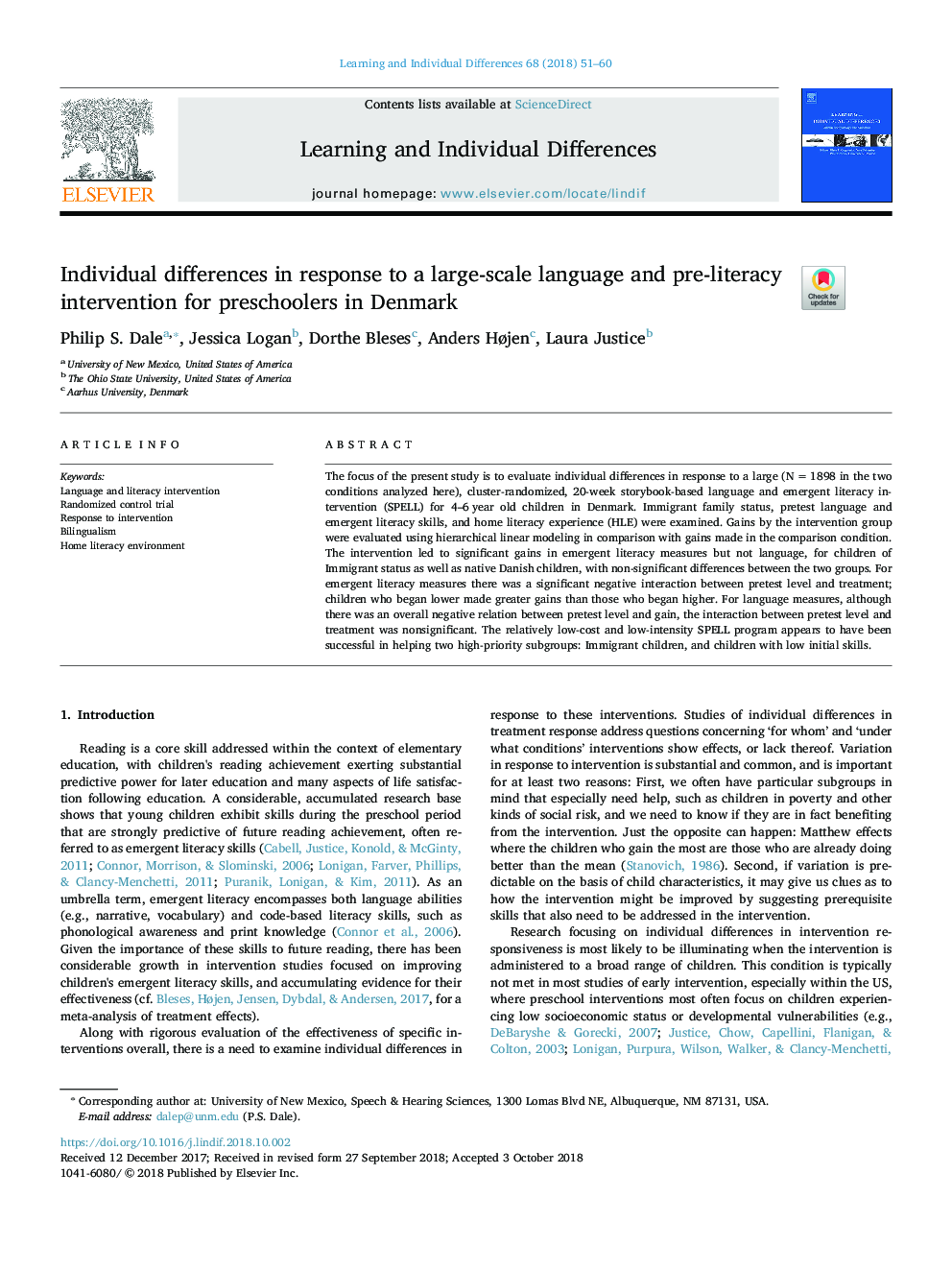| Article ID | Journal | Published Year | Pages | File Type |
|---|---|---|---|---|
| 11024001 | Learning and Individual Differences | 2018 | 10 Pages |
Abstract
The focus of the present study is to evaluate individual differences in response to a large (Nâ¯=â¯1898 in the two conditions analyzed here), cluster-randomized, 20-week storybook-based language and emergent literacy intervention (SPELL) for 4-6â¯year old children in Denmark. Immigrant family status, pretest language and emergent literacy skills, and home literacy experience (HLE) were examined. Gains by the intervention group were evaluated using hierarchical linear modeling in comparison with gains made in the comparison condition. The intervention led to significant gains in emergent literacy measures but not language, for children of Immigrant status as well as native Danish children, with non-significant differences between the two groups. For emergent literacy measures there was a significant negative interaction between pretest level and treatment; children who began lower made greater gains than those who began higher. For language measures, although there was an overall negative relation between pretest level and gain, the interaction between pretest level and treatment was nonsignificant. The relatively low-cost and low-intensity SPELL program appears to have been successful in helping two high-priority subgroups: Immigrant children, and children with low initial skills.
Related Topics
Social Sciences and Humanities
Psychology
Developmental and Educational Psychology
Authors
Philip S. Dale, Jessica Logan, Dorthe Bleses, Anders Højen, Laura Justice,
